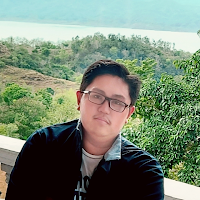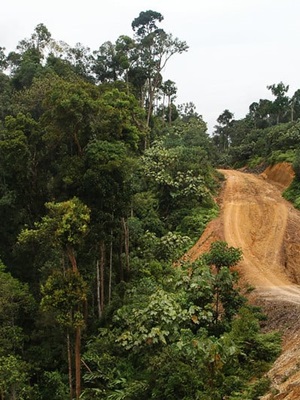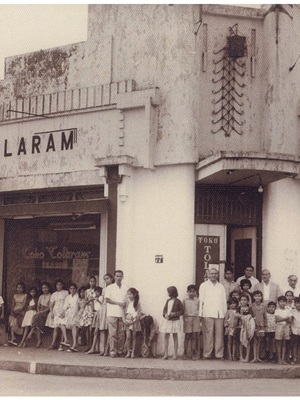We have been framed by the thinking that to be educated means to follow a certain order of learning. This so-called “order,” it is said, will give us the ladder to success. It is believed that achievements can be obtained by learning not to negate the given order but to sustain, reinforce, and dream for it. Those who go against the order of the system are seen to be running against “orderliness,” “authority,” and “education” itself.
For Paulo Freire, a Brazilian critical thinker and educator, learning consists not only in molding ourselves to what is “given” to us by authority figures but also in shaping it ourselves. It does not mean that we should refuse to “receive” anything and legitimize violent obduracy against a given order. In fact, Freire challenges us to challenge ourselves through a self-critical understanding of a given order rather than becoming pigheaded about our “ideological correctness.” From this perspective, genuine education is about the process of receiving and giving, where learners benefit from and are also contributing to the process. As such, lifelong learners of society must constantly attempt to overcome the complacency, misleading them that the so-called “order” as determined by the prevailing system is, indeed, orderly in the truest sense of the term.
In a world that sparingly gives time to re-thinking our decisions and way of life, Freire believes that learning, if we are serious in bringing it about for the betterment of society, must always be constantly guarded. Such an understanding of human beings as learning endlessly comes from the philosophical anthropology of Paulo Freire. Instead of accepting ourselves as merely passively walking the Earth and pulled by gravity, Freire understands the dialectical potential of human beings as capable of not merely accepting “fatalistically” our immobile, despondent situation, but of driving historical changes. Human beings are not merely changed by history, for people are also capable of creating history itself. Learning entails the refusal to simply be conditioned and programmed like docile robots under the manipulation of an engineer, for such a precious process is humanizing, as it involves remembering, re-thinking, re-questioning, reflecting, re-dreaming, among other things that cannot be reduced to machine learning.
Does that mean that we should always choose the red pill even if it is inconvenient? While it is true that blissful ignorance in taking the blue pill shows obvious timorousness on the part of Neo had he not taken the red pill to continue the search for the truth, Freire would tell us that reality is more complex than this allegory. For instance, even polarizing politics and the neoliberal ideology towards endless growth and profit might delude us into thinking that anything that stops growth is anti-development. This has been the line of argument of U.S. President Donald Trump in his speech at the United Nations General Assembly last September 23, 2025. By merely portraying the reduction of carbon emissions as “green scams” simply because it reduces the profit of the industry, Trump was able to deliver an awful argument that countries are being deprived of success if the consumption of what he calls “clean, beautiful coal” is cut down. Is development just that, and nothing more? To be sure, we cannot pretend to be Neo, seeing all at once how we were made batteries after the fact that the Earth has been so devastated, which could probably give us a disillusioned view that something must be changed in the dominant matrix of development.
In settling for the dominant narrative of growth, we have lost the thrill of truth-seeking and unknowingly displaced the very spirit that questions our complacency in accepting the dark realities that this entails. The part of us that once thirsted for learning has faded in our hearts. In a world obsessed with accelerated growth, competition, and mindless innovation, Trump was able to create a destructive narrative that can be shoehorned into a system that neglects the integrated development of the entire ecosystem. Baseless suspicion, or worse, fabricated fear, is not a good ground for scientific understanding of things. Even before being elected in his second term as president, Trump was dismissing the detrimental consequences of the climate crisis by merely reducing it to mere propaganda with a so-called hidden “political agenda,”without even explaining further what it is and how he has arrived at that distrust, if at all it is true. Trump even had the audacity to commission an assessment report to justify the relaxation of climate regulations in the US, which many scientists found to contain much false content and misleading sources of information. For instance, the said report downgraded the problems of water scarcity exacerbated by climate warming by conflating such a fact with the greening of some arid areas.
No amount of coercion and force can truly change our consciousness, except the dialogical disposition that we unwaveringly pursue and hone with the process of learning. We must also be reminded that to be critical does not mean to arrogate to oneself all the far-fetched powers of radicalizing things. Even though Freire has been pushing for the progressive side of education, he believes that the radicality of dialogue outlasts the exclusionary reforms instituted in a mechanistic and vanguardist way, as in the case of authoritarianism in Stalinist ideology and in the absolutist unfriendliness of the Left towards democracy.[4] Such a democratic education is so radical that it refuses to embrace a disposition towards pure activism that negates reflection, which only leads to unexamined biases, prejudices, and injustice.[5] We can perhaps try to rethink an economic framework with ethical standards that abate the fixation towards growth and accumulation, which is highly destructive for the environment, while retaining a certain amount of market freedom and efficiency in the economy. A crucial matter to probe about the consumeristic economy is the drive for profit borne out of the reality that households save not only for emergencies but also to boost their investment capacities in firms excessively. As a result, most firms are pressured to innovate, project, and support consumeristic lifestyles. It is worth quoting at length what the economist Tim Jackson observed:
[…] Isn’t there a point at which enough is enough[,] and we should simply stop producing and consuming so much?
One of the things that prevents this [from] happening, clearly, is the structural reliance of the system itself on continued growth. The imperative to sell more goods, to innovate continually, to stimulate higher and higher levels of consumer demand is driven [forward] by the pursuit of growth. […]
[…] Product lifetimes plummet as durability is designed out of consumer goods and obsolescence is designed in. Quality is sacrificed relentlessly to volume throughput. The throw-away society is not so much a consequence of consumer greed as a structure prerequisite for survival.[7]
Failing to re-examine what motivates or demotivates us to investigate the configuration of reality as it stands is also a failure to know the ordeal that we are stuck with. With Freire’s pedagogy of dialogue, I am reminded of what Otto Scharmer has said in redefining and redesigning universities as institutions of knowledge revitalized by a sense of humility. For Scharmer, positive change does not merely mean becoming so technologically advanced but also shows that academic institutions search with humility, which, in the etymological sense, means being “grounded” in a shared reality through deep systems thinking. If we simply reduce development, for instance, to the calculable movement of GDP and GNP, we become unmoved by the other crucial matters that beset our society – those that cannot be reduced to numbers of commerce. We might, for instance, glorify the huge volume of sales in guns and other security technologies without knowing that its underlying cause is the escalating rates of crime due largely to socioeconomic inequities. Other developmental activities are difficult to measure based on the price of the market, such as reading programs, clean-up drives, peace of mind, safety of a community from violence, enlightening discourses, the ecological balance and harmony in biodiversity, among others. As Paulo Freire once quipped:
So[,] the process of transformation is aesthetic, ethical, political, and knowledge-building. It implies that I should become ever more knowledgeable, not only of the object I wish to transform it, and the outcome to be achieved by transforming it. This also implies that I need to know something more than the object itself. So[,] all [these] points to a critical exercise in understanding the world; a clarity of thought rather than pure passion, which must also exist, because it is with my body and soul that I embark on the struggle for change: it involves passion, my desire, my frustration, my fears, etc., etc., but also my knowledge.[9]
When we simply treat education as merely the banking type of commerce, where we simply accumulate concepts, we forget how knowledge should be of service to society, especially to deliver problem-posing endeavors. When we simply experience extreme heat waves, life-threatening typhoons, the depletion of the ozone layer, the uncontrollable growth of the economy, and the reality of carbon emissions as separate facts of life without any attempt to find the connection between them, we become ignorant of the climate crisis and the socio-economic inequities that perpetuate it. Thus, we become trapped in what Freire calls the “focalist view of reality,”[10] which makes us incapable of having a shared understanding about the problem, far less a solidarity to effectively sequester carbon emissions and other pollutants that increase global warming and its detrimental effects. Instead of mobilizing resistant narratives and discourses against a culture and industry heavily reliant on fossil fuels and mining, people become complacent and continue their highly consumerist lifestyles and ambitions, which all the more pushes the economy to exploit the limited resources of the Earth. Despite many instances showing how trees, through their roots and canopies, can intercept flooding and prevent massive soil erosion, society is still relying heavily on flood-control infrastructures. Many are dismayed, for example, with the ghost projects and substandard quality of flood-control projects in the Philippines, but a few seemed to be seriously alarmed by the massive deforestation, which is one of the principal causes of floods and landslides.[13]
We need not only the courage to fight for what we think is right, but also the openness to encounter the opposite of what we are supporting. In this way, we allow ourselves to be involved in our relentless improvement. Dialogical education is not merely the demarcation of the so-called “educated” and “non-educated” nor those who are considered “smart” or “underachiever,” for it is, in essence, the augmentation of our understanding, even if, at some point, the realization that comes as its fruit is difficult to accept, yet very much reasonable to affirm. It is in this educational culture that we see how diplomas and certificates are not the holy grail upon which democratization must be evaluated as fulfilled. It is as if the world is being buried under concrete, as it is perceived to be a sign of so-called development.
Rather than being content with seeing our walls filled with certificates of accomplishment and compliance, we need to understand whether these very walls become the fortress where we guard our societies against destructive values that perpetuate the avoidable sufferings of people, or whether these are only obstacles to seeing the reality of oppression and corruption that deprive our society of positive change. In the parlance of Paulo Freire, “ruptures” of the dominant order are sometimes necessary to break the wall, which seems unbreakable until we see and hear what prevents us from demythologizing our shared struggle. Such an educational culture demands that we confront the limits of our emotions, commitments, reasoning, and experiences. So, the wall that we have long held to simply function as our protective refuge could sometimes be breached to encounter what is different and assess the justification for why we answer this way rather than that way in a riddle. After all, the riddles that we ourselves uncover in our democratic atmosphere are not only to be answered alone. Just as we need to know how and why such a riddle is in the form that it has become, so too the “order” that we often take for granted.
[4] Paulo Freire, Teachers as Cultural Workers: Letters to Those Who Dare Teach, translated by Donaldo Macedo, Dale Koike Alexandre K. Oliveira (United States of America: Westview Press, 2005), 26; 105; 130.
[5] Paulo Freire, Pedagogy of the Oppressed, translated by Myra Bergman Ramos (New York: Continuum, 1970), 88-89.
[7] Tim Jackson, Prosperity Without Growth: Economics for a Finite Planet (United Kingdom: Earthscan, 2009), 97.
[9] Paulo Freire, Pedagogy of Commitment, translated by David Brookshaw and Alexandre K. Oliveira (United States of America: Paradigm Publishers, 2014), 70.
[10] Paulo Freire, The Politics of Education: Culture, Power, and Liberation, translated by Donaldo Macedo (United States of America: Bergin & Garvey Publishers, Inc., 1985), 14
Posted 21/10/2025

















